|

|
War Of
the Worlds |

|
|

|
|
 |
|

|
|
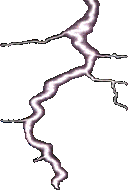
|
Part
one: The Coming of the Martians
|

|
|
|
|
|
|
|

|
No one
would have believed, in the last years of the nineteenth century, that
human affairs were being watched from the timeless worlds of space. No one
could have dreamed that we were being scrutinized as someone with a
microscope studies creatures that swarm and multiply in a drop of water.
Few men even considered the possibility of life on other planets. And yet,
across the gulf of space, minds immeasurably superior to ours regarded
this earth with envious eyes, and slowly and surely, they drew their plans
against us.
|

|
|
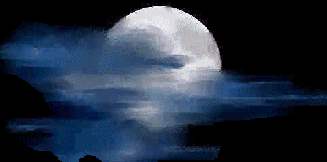
|
The Eve
of the War
At
midnight, on the 12th of August, a huge mass of luminous gas erupted from
Mars and sped towards Earth. Across two hundred million miles of void,
invisibly hurtling towards us, came the first of the missiles that were to
bring so much calamity to Earth. As I watched, there was another jet of
gas. It was another missile, starting on its way.
And that's how it was for the next ten nights. A flare, spurting out from
Mars. Bright green, drawing a green mist behind it; a beautiful, but
somehow disturbing sight. Ogilby, the astronomer, assured me we were in no
danger. He was convinced there could be no living thing on that remote,
forbidding planet.
|
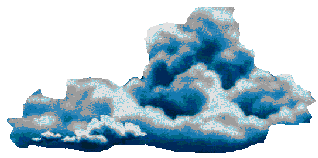
|
|
|
|
 |
Chorus
The chances of anything coming from Mars
Are a million to one, he said (ahh, ahh)
The chances of anything coming from Mars
Are a million to one, but still, they come... |

|
|

|
Then
came the night the first missile approached Earth. It was thought to be an
ordinary falling star, but next day there was a huge crater in the middle
of the common, and Ogilby came to examine what lay there. A cylinder,
thirty yards across, glowing hot, with faint sounds of movement coming
from within. Suddenly the top began moving: rotating, unscrewing; and
Ogilby feared there was a man inside trying to escape. He rushed to the
cylinder but the intense heat stopped him before he could burn himself on
the metal. |

|
|

|
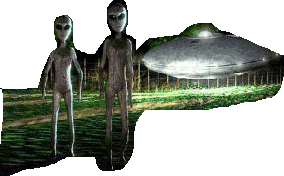
|
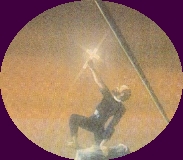
|
|
Chorus
The chances of anything coming from Mars
Are a million to one, he said (ahh, ahh)
The chances of anything coming from Mars
Are a million to one, but still, they come...
Yes, the chances of anything coming from Mars
Are a million to one, he said (ahh, ahh)
The chances of anything coming from Mars
Are a million to one, but still, they come...
|
|
|
|
|
|
|
|
Horsell
Common and the Heat Ray |
|
It seems
totally incredible to me now that everyone spent that evening as though it
were just like any other. From the railway station came the sound of
shunting trains, ringing and rumbling, softened almost into melody by the
distance. It all seemed so safe and tranquil.
Next morning a crowd gathered on the common, hypnotized by the unscrewing
of the cylinder. Two feet of shining screw projected when suddenly, the
lid fell off. Two luminous, disk-like eyes appeared above the rim. A huge
rounded bulk, larger than a bear, rose up slowly, glistening like wet
leather. Its lipless mouth quivered and slathered, and snakelike tentacles
writhed as the clumsy body heaved and pulsated.
A few young men crept closer to the pit. A tall funnel rose and an
invisible ray of heat leapt from man to man, and there was a bright glare
as each was instantly turned to fire. Every tree and bush became a mass of
flames at the touch of this savage, unearthly heat.
People clawed their way off the common, and I ran too. I felt I was being
toyed with, that when I was on the very verge of safety this mysterious
death would leap after me and strike me down. At last I reached Maybury
Hill, and in the dim coolness of my home I wrote an account for my
newspaper before I sank into a restless, haunted sleep.
I awoke to alien sounds of hammering from the pit and hurried to the
railway station to buy the paper. Around me, the daily routine of life,
working eating, sleeping, was continuing serenely as it had for countless
years. On Horsell Common, the Martians continued hammering and stirring,
sleepless, indefatigable, at work on the machines they were making. Now
and again a light like the beam of a warship's searchlight would sweep the
common, and the heat ray was ready to follow.
In the afternoon, a company of soldiers came through and deployed along
the common to form a cordon.
That evening, there was a violent crash and I realized with horror that my
home was within reach of the heat ray.
At dawn, a falling star with a trail of green mist landed with a flash
like summer lightning. This was the second cylinder.
|
|
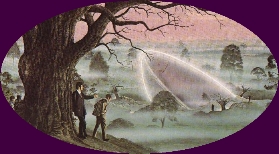
|
|
|
|
|
|
|
|

|
The Artilleryman and the
Fighting Machine |
|
|
|
|
|
|
|
|
|
|
|
|
